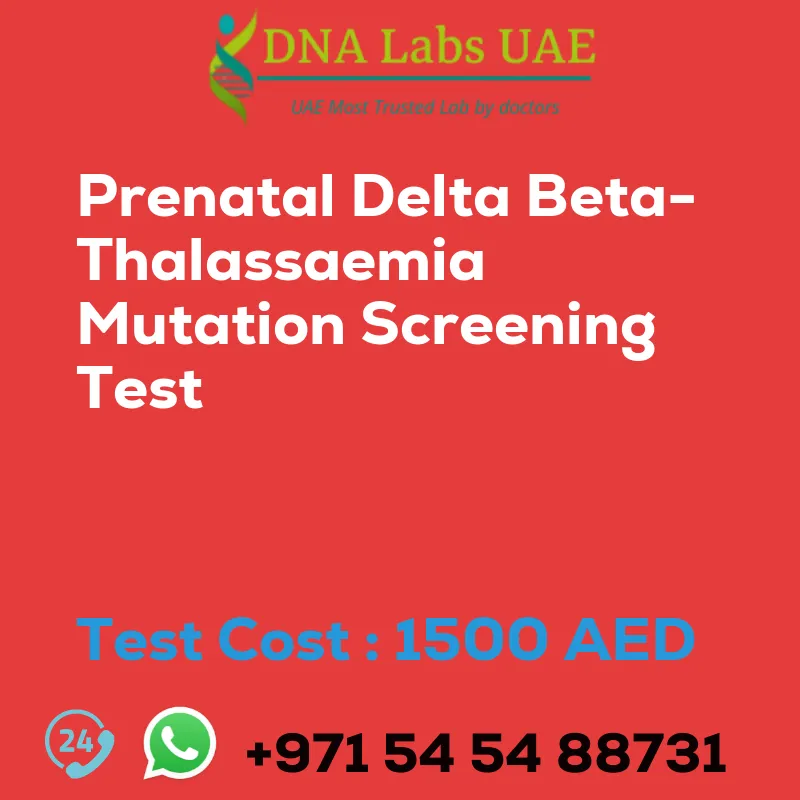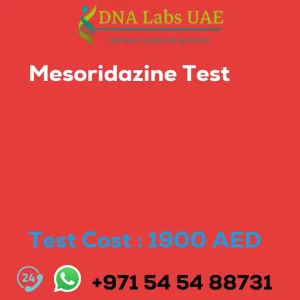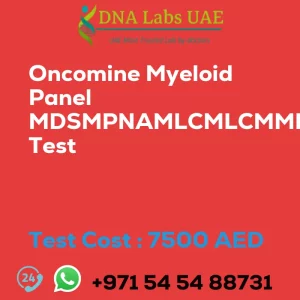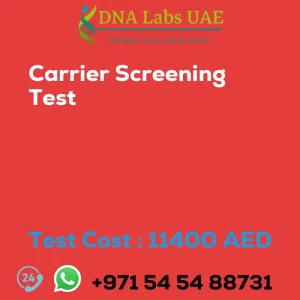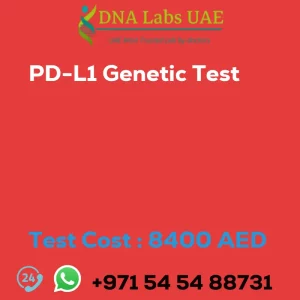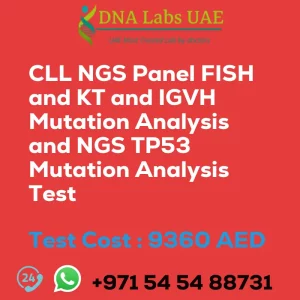Prenatal Delta Beta- Thalassaemia Mutation Screening Test
Test Name: Prenatal Delta Beta- Thalassaemia mutation screening Test
Components: Sterile container/ Sterile Normal Saline Container/ EDTA Vacutainer
Price: 1500.0 AED
Sample Condition: Amniotic fluid/ Chorionic villi/ Peripheral blood
Report Delivery: 5-6 days
Method: End Point PCR
Test Type: Genetics
Doctor: General Physician
Test Department:
Pre Test Information: Prenatal Delta Beta- Thalassaemia mutation screening can be done with a Doctor’s prescription. Prescription is not applicable for surgery and pregnancy cases or people planning to travel abroad.
Test Details: Prenatal Delta Beta-Thalassaemia mutation screening is a genetic test performed during pregnancy to detect specific mutations in the Delta and Beta-globin genes associated with Thalassaemia. Thalassaemia is a group of inherited blood disorders characterized by abnormal production of hemoglobin, the protein responsible for carrying oxygen in the blood. The screening is typically recommended for couples who are carriers of Thalassaemia or have a family history of the condition. It helps to determine the risk of the fetus inheriting the disease and allows parents to make informed decisions regarding the pregnancy. During the screening, a sample of the fetus’s DNA is collected, usually through chorionic villus sampling (CVS) or amniocentesis. The DNA is then analyzed in a laboratory to identify any specific mutations in the Delta and Beta-globin genes. If the screening identifies a mutation, further testing may be recommended to confirm the diagnosis and assess the severity of the condition. This information can help healthcare providers and parents develop a management plan for the affected child, which may include regular blood transfusions, iron chelation therapy, and other supportive treatments. Prenatal Delta Beta-Thalassaemia mutation screening is an important tool in prenatal care for couples at risk of having a child with Thalassaemia. It allows for early detection and appropriate management of the condition, improving the outcomes for affected individuals and their families.
| Test Name | Prenatal Delta Beta- Thalassaemia mutation screening Test |
|---|---|
| Components | Sterile container/ Sterile Normal Saline Container/ EDTA Vacutainer |
| Price | 1500.0 AED |
| Sample Condition | Amniotic fluid\/ Chorionic villi\/ Peripheral blood |
| Report Delivery | 5-6 days |
| Method | End Point PCR |
| Test type | Genetics |
| Doctor | General Physician |
| Test Department: | |
| Pre Test Information | Prenatal Delta Beta- Thalassaemia mutation screening can be done with a Doctors prescription. Prescription is not applicable for surgery and pregnancy cases or people planing to travel abroad. |
| Test Details |
Prenatal Delta Beta-Thalassaemia mutation screening is a genetic test performed during pregnancy to detect specific mutations in the Delta and Beta-globin genes associated with Thalassaemia. Thalassaemia is a group of inherited blood disorders characterized by abnormal production of hemoglobin, the protein responsible for carrying oxygen in the blood. The screening is typically recommended for couples who are carriers of Thalassaemia or have a family history of the condition. It helps to determine the risk of the fetus inheriting the disease and allows parents to make informed decisions regarding the pregnancy. During the screening, a sample of the fetus’s DNA is collected, usually through chorionic villus sampling (CVS) or amniocentesis. The DNA is then analyzed in a laboratory to identify any specific mutations in the Delta and Beta-globin genes. If the screening identifies a mutation, further testing may be recommended to confirm the diagnosis and assess the severity of the condition. This information can help healthcare providers and parents develop a management plan for the affected child, which may include regular blood transfusions, iron chelation therapy, and other supportive treatments. Prenatal Delta Beta-Thalassaemia mutation screening is an important tool in prenatal care for couples at risk of having a child with Thalassaemia. It allows for early detection and appropriate management of the condition, improving the outcomes for affected individuals and their families. |

